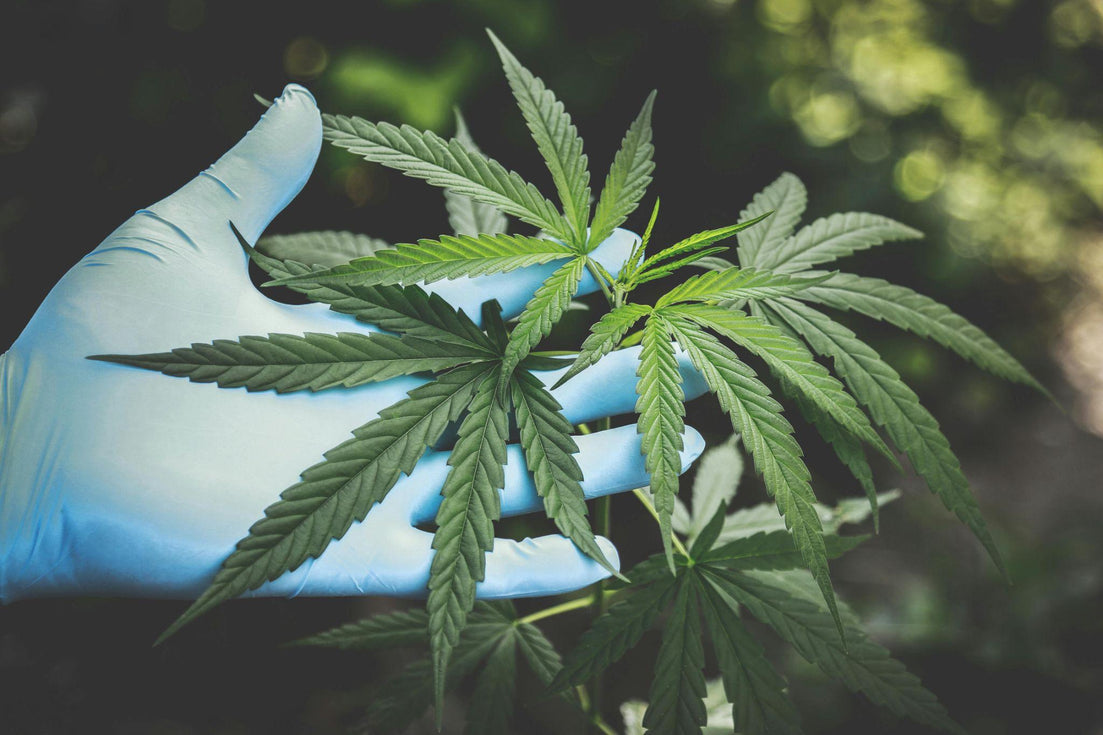Your cart is currently empty.

Understanding the intricacies of thc-o vs delta-8 is essential for anyone deeply invested in the world of cannabis compounds. It's not just about knowing their names; it goes beyond that.
You probably already know these are two distinct cannabinoids derived from hemp plants, each with its unique properties and effects. Have you ever asked yourself what makes them distinct?
The difference between thc-o and delta-8 lies in their chemical structure, origin, extraction process, legal status and potential benefits. These factors have a major impact on how they affect our bodies.
In this guide we're going to dive deep into these complexities. From understanding THC-O acetate's potent high compared to other controlled substances to exploring Delta-8’s federal legality and wellness benefits - we've got it all covered!
Understanding THC-O and Delta-8
When it comes to the cannabis world, Delta-8 and THC-O, two hemp-derived cannabinoids, are making a name for themselves. Both of these naturally occurring compounds boast unique chemical structures that set them apart.
The Main Difference Between THC-O and Delta-8
In the THC-O vs Delta-8 debate, their chemical structure is an essential aspect to consider. Although both come from hemp plants, they differ significantly in terms of the extraction process.
To start with Delta 9-tetrahydrocannabinol (Delta 9), this compound degrades due to light or heat exposure resulting in its cousin - Delta 8. However, only trace amounts occur naturally within the plant itself. Hence, obtaining commercial quantities requires laboratory synthesis involving sophisticated equipment and expert chemists.[1]
In contrast, Tetrahydrocannabinolic acid (THCA), another cannabinoid present within cannabis, undergoes decarboxylation, converting into THC through heating followed by the addition of acetate ester under specific conditions, leading to the creation of 'THC-O', also known as THCO[2].
The federally legal status remains a grey area for these compounds primarily because laws often lag behind evolving scientific understanding about various cannabinoids. Under current federal law, according to Farm Bill regulations, any derivative of Hemp containing less than 0% Delta THC falls within federally legal parameters[7].
Potential Benefits Of The Two Compounds
Diving into the perks of THC-O versus Delta-8, folks say they feel less high with delta-eight compared to regular marijuana products[7]. This makes it a good choice for those looking for relief without feeling too stoned. On the flip side, users reckon that THC-O gives a stronger buzz than its cousin Delta-8, hinting at possible uses like recreational where a more intense high is wanted. But remember, we need to tread carefully here because there's not enough clinical trial data yet. So, we definitely need more research.
THC-O and Delta-8, two hemp-derived cannabinoids, are making waves in the cannabis world due to their unique chemical structures. While both originate from hemp plants, they undergo different extraction processes - Delta 8 is a degraded form of Delta 9-tetrahydrocannabinol (Delta 9), while THC-O results from heating THCA and adding
THC-O Acetate: A Deeper Dive
In the continually advancing cannabis landscape, novel compounds are constantly being identified and synthesized. A newly synthesized compound, THC-O acetate, is gaining attention for its purported effects that surpass those of Delta-9 or Delta-8 THC.
This particular derivative stands out due to its potent high, which reportedly surpasses that of Delta-9 or even Delta-8 THC. It is manufactured through a chemical reaction with acetic anhydride – an organic compound used in producing aspirin and other pharmaceuticals.
The Production Process Explained
To create THC-O acetate, you first need to extract the naturally occurring cannabinoid from raw cannabis material before subjecting it to acetylation using acetic anhydride. This process transforms regular delta-9 THC into its more powerful analogue – THC-O acetate.
Note that this procedure requires professional expertise, as working with chemicals like acetic anhydride can be hazardous without proper safety measures. Moreover, unlike traditional cannabinoids derived directly from hemp or marijuana plants, this synthetic production process means that THC-O falls under different legal regulations compared to other controlled substances.
A Potent High Unlike Other Controlled Substances
A key distinguishing feature of THC-O acetate from other forms of THC lies in its potency level; some users report feeling effects three times stronger than standard delta-9 THC products. The strength contributes significantly towards delivering what many describe as a 'spiritual' or 'psychedelic' experience when ingested properly within recommended limits.
Beyond offering profound psychological effects akin to psychedelics like psilocybin mushrooms or LSD at higher doses (5 times more intense), preliminary research also indicates potential therapeutic benefits, including antiemetic properties - helping reduce nausea and vomiting caused by chemotherapy treatments among others.
Navigating the Legal Landscape Of THC-O Acetate
When it comes to legality, there are several gray areas surrounding these types of artificially synthesized cannabinoids, but not limited to state laws versus federal regulations around them, making their status somewhat ambiguous depending upon geographical location plus individual user circumstances.
Let's keep moving forward.
THC-O acetate is a new kid on the cannabis block, created synthetically and packing a punch three times stronger than standard delta-9 THC. While it promises an intense 'psychedelic' experience and potential therapeutic benefits, its production process demands professional expertise due to safety risks. Plus, navigating through its legal maze can be tricky with gray areas in state
Delta-8: Unraveling its Unique Properties
In the vast and ever-evolving universe of cannabis, Delta-8 is a new star on the horizon. This naturally occurring compound from hemp plants has some unique properties that are sparking global interest.
Diving into the Nature of Delta-8
So what exactly is Delta-8? Delta-8-tetrahydrocannabinol, an obscure cannabinoid in comparison to its more renowned counterparts like CBD and Delta 9 THC, is recognized scientifically. Don't let its 'lesser' standing deceive you. Even though it occurs only in small amounts within the hemp plant, through specialized extraction processes, we can isolate this gem.
The intriguing aspect about Delta-8 lies not just in how similar it seems to other cannabinoids but also where it diverges. Unlike traditional forms of THC, which might lead to anxiety or paranoia due to their psychoactive nature, our little friend offers users a calm high without those negative side effects.
Federal Legality: A Gray Area for Delta-Eight
When talking legality at the federal level within the United States territory, things become quite tricky with regards to delta-eight. The Agricultural Improvement Act passed by Congress back in 2014 made all derivatives, extracts, and cannabinoids derived from hemp legal if they contain less than 0.3% delta nine THC by dry weight basis; however, there’s ambiguity around whether synthesized compounds like delta eight fall under these regulations since they're often produced via conversion from CBD or other cannabinoids.
Potential Wellness Benefits Of Using This Cannabinoid
Beyond offering an easy-going euphoria minus significant side-effects typically linked with getting ‘high’, preliminary research points towards potential therapeutic benefits associated with using this compound, such as pain relief and anti-inflammatory properties, among others, based on anecdotal evidence available currently, although conclusive scientific studies need further investigation.
- So, the idea behind the entourage effect is pretty cool. It's all about how different compounds in cannabis can work together to boost its overall positive effects. That's why full spectrum products with a mix of compounds are often more beneficial.
Delta-8 is a rising star in the cannabis universe, offering users an easy-going high without typical side-effects. It's legality remains a gray area federally, but its potential wellness benefits and contribution to the 'entourage effect' of full-spectrum products make it worth exploring. Remember though, while promising, these effects need further scientific investigation.
Comparing the Effects of THC-O and Delta-8
The world of cannabis is rich with various compounds, each offering unique effects. Two such intriguing elements are THC-O and Delta-8. They are different not only in their chemical structure but also in how they make users feel when consumed.
Both THC-O and Delta-8 have gained attention for their potential impacts on appetite stimulation and sleep, among other things. It's essential to bear in mind that individual differences, such as tolerance level, dose size, and consumption approach, can lead to varied experiences.
The Stronger Feelings Triggered by THC-O
THC-O stands out in the crowd because its effects are often perceived as stronger than traditional delta 9 THC or even Delta-8. Users report experiencing a mild euphoric high that sometimes verges on being borderline hallucinogenic.
In fact, some people claim to feel these psychoactive effects up to 10 times more intensely than those produced by delta 9 or Delta-8 variants. This potency has led many consumers to use THC-O for better sleep, thanks largely to its sedative properties.
The Mild Euphoria Induced by Delta-8
Moving on to another cannabinoid, Delta-8, it offers a less intense experience overall compared to THC-O. The high associated with this compound tends to be milder and more body-focused rather than mind-altering, as typically found in substances like THC-O or regular delta 9 versions.
This characteristic makes Delta-8 suitable if you're looking to maintain clarity while also experiencing relief against anxiety and stress symptoms. So, although both of these cannabinoids may offer similar benefits, there are clear differences between them that could impact user preferences depending on what kind of effect they seek from consuming cannabis products.
Differentiating Appetite Stimulation and Sleep Impacts
People know cannabis can kickstart your appetite, but not all cannabinoids work the same way. Take THC-O and Delta-8 for example - they seem to impact our eating habits differently based on who we are. But generally speaking,
THC-O and Delta-8, two unique cannabis compounds, offer varied experiences to users. THC-O is known for its strong effects which can be borderline hallucinogenic and promote better sleep due to its sedative properties. On the other hand, Delta-8 provides a milder high that's more body-focused than mind-altering, offering relief against anxiety and
FAQs in Relation to Thc-O vs Delta-8
Is THC-O better than Delta?
The "better" compound depends on individual preferences. While THC-O is more potent, Delta-8 offers a milder and smoother experience.
What is a THC-O high like?
A THC-O high can be intense and borderline hallucinogenic, often described as three times stronger than traditional delta-9-THC.
Is THC-O the most potent?
In terms of cannabinoids derived from hemp plants, yes. THC-O Acetate has been reported to be several times more potent than regular delta-9-THC.
Does THC-O show up on a drug test?
Yes, since it's metabolized into 11-hydroxy-delta-9-tetrahydrocannabinol in your body – which typical cannabis tests detect for – using THC-O may result in positive drug screenings.
Conclusion
Unraveling the complexities of THC-O vs Delta-8 has been quite a journey.
We've explored their chemical structures, origins, and how they're derived from hemp plants.
You now know that while both are cannabinoids, their occurrence and extraction processes differ significantly.
THC-O acetate's production process involves acetic anhydride, resulting in a potent high compared to other substances. It is synthetically produced but carries its own set of risks due to its potency.
On the other hand, Delta-8 is naturally occurring with potential wellness benefits despite being less potent than THC-O acetate. Its federal legality makes it more accessible for those seeking mild euphoria or appetite stimulation sleep aids.
If you're ready to delve deeper into cannabis compounds like these or others such as CBD and Delta 9, consider exploring Weed Republic. We offer extensive resources on everything cannabis-related - from health benefits to legalities and beyond. Start your journey today by visiting Weed Republic. You'll find comprehensive guides on all things related to this versatile plant!



